I was hunting in the Colorado Rockies when a +33 international phone number showed up on my caller ID. “Hello?” I had no idea who it could be.
“Hey, Christian.” I heard bustling behind the caller and muffled French voices. I knew immediately who it was, and I was elated to hear his voice. I hadn’t heard anything from Alex in nearly six months. He’d left his corporate job, his apartment, and even his car still sitting in his driveway.
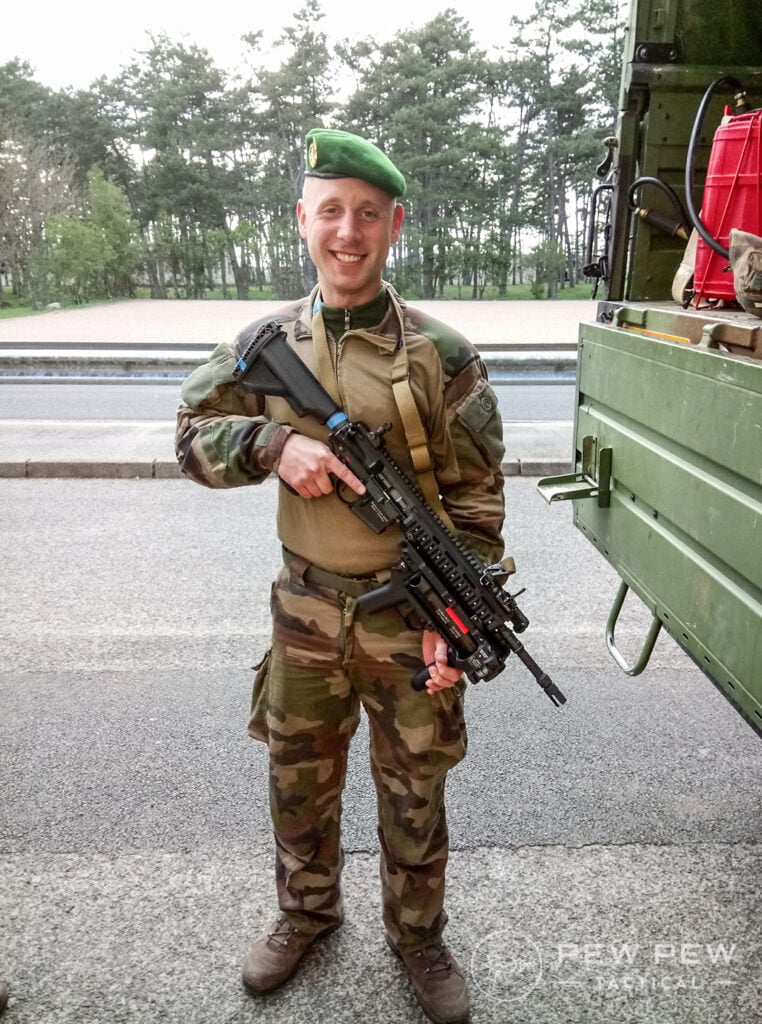
Everyone knew he’d always wanted to join the French Foreign Legion, but had he really done it? Even his family hadn’t known.
Now he had a new name, he told me, and a new ID. He’d gone through all his basic combat training and was now training to be a radioman. He provided a few more details, but then a voice came from behind, he responded in French, and he said he had to go.
I didn’t hear from him again for several more months. By then he was based outside of Montpellier in the 13th Demi-Brigade where he’d spend the next five years.
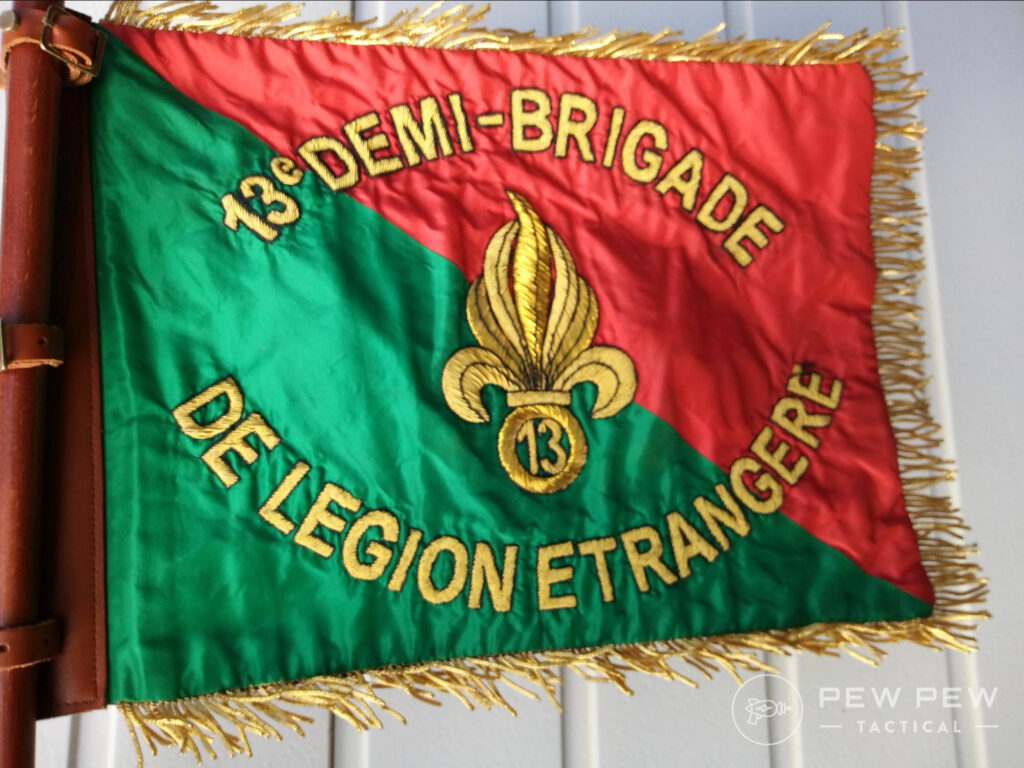
Table of Contents
Loading…
The French Foreign Legion
What I knew about the French Foreign Legion before Alex joined was minimal. I’d really only been exposed to two stark, perhaps competing, stereotypes of an elite fighting force and a refuge for fleeing criminals and transients.
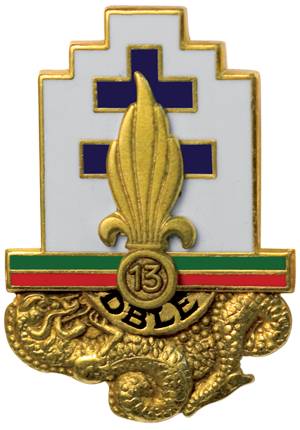
If you haven’t even heard these, let me put it more simply. When I told a friend of mine, a former Recon Marine who’d trained with the FFL, that Alex was a legionnaire, he chuckled. “So he’s crazy,” he said.
While I’ve come to learn there are definitely aspects of the French Foreign Legion that live up to its reputation, there’s also a lot most people don’t know and make the FFL one of the more interesting and diverse military forces in the world.
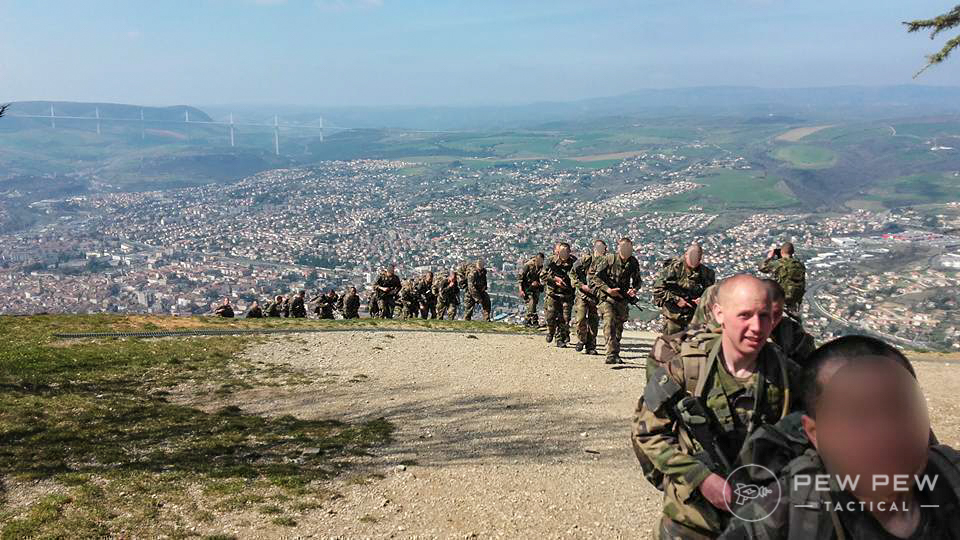
In case you don’t know what it is…
The French Foreign Legion is a specific branch of the French army that accepts anyone from anywhere. While a few other countries, including the United States, have ways for non-citizens to join their armed forces, there’s always some kind of catch or caveat.
That’s not the case with the FFL. Just show up in Aubagne, a small town outside of Marseilles, and turn in your passport.
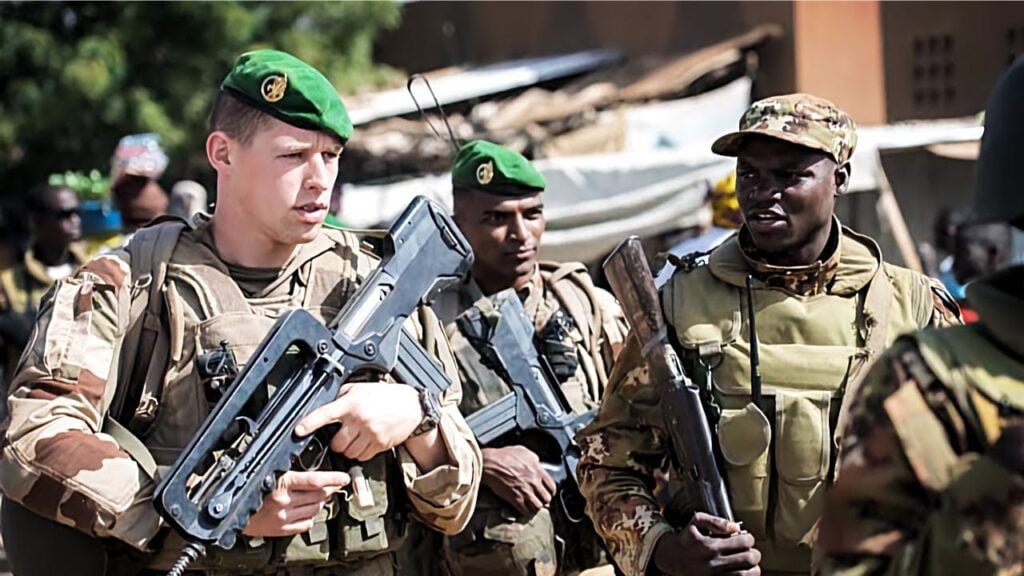
Those who join La Legion do so for a lot of reasons. Historically, many criminals and transients wanting to escape their past joined to start a new life. Service grants you a new French identity and allows you to apply for French citizenship.
Although Alex told me there were plenty of people there who seemed like they’d left something behind, the majority were Africans from Francophone countries and Eastern Europeans looking for a better life in the West. There were also those who have always dreamed of military service but for one reason or another couldn’t join in their home countries.
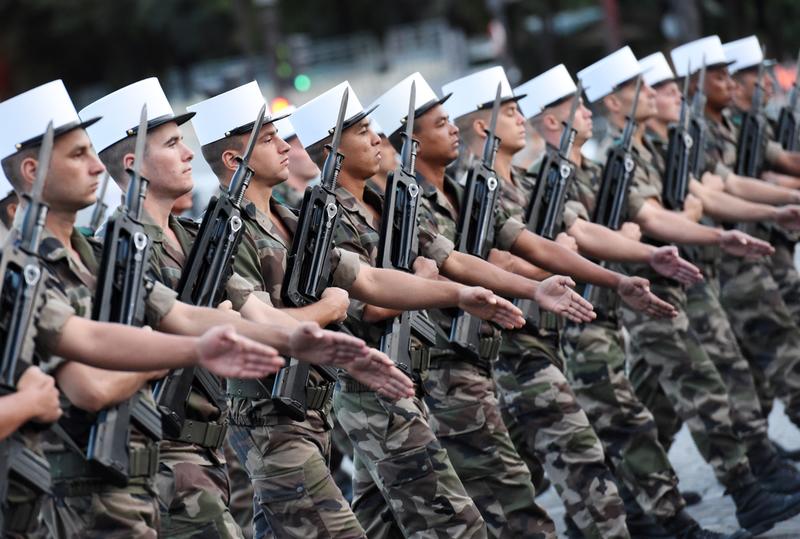
Lastly, the legion has its adventurers, even if they’re a minority. Maybe they even have prior military service. Either way, they’re always looking for the next adrenaline rush. Once they get out of the legion, many head for Syria, the Ukraine or private paramilitary companies.
France had a long history of using foreign troops and mercenaries, but the French Foreign Legion was finally created to consolidate these in 1831 by King Louis Philippe I.
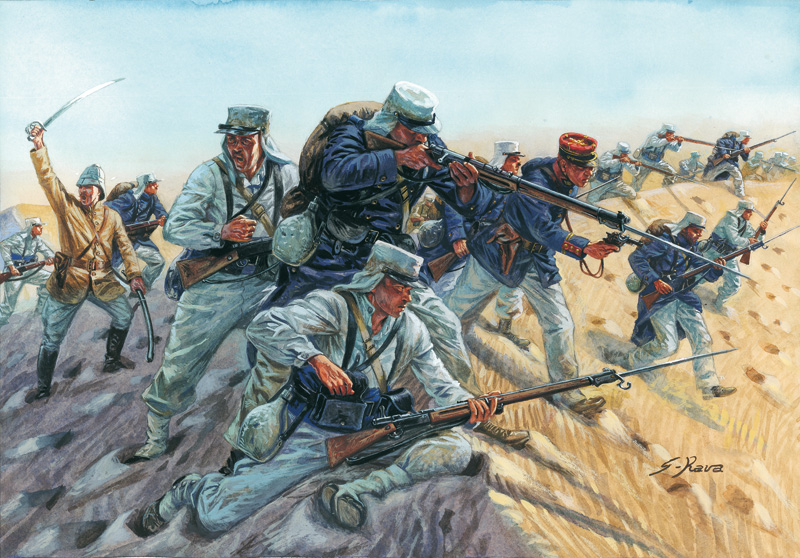
Its original purpose was to help France expand its empire in the 19th Century, particularly in Africa. Since then, they’ve continued to play a central role in France’s foreign and domestic military engagements, from the World Wars to the global war on terror.
The Legion really rose to fame in World War I when thousands of foreigners, many from recently annexed German territories, flocked to enlist and support the French cause. They were integral during the Battle of Somme, one of the bloodiest battles in human history.
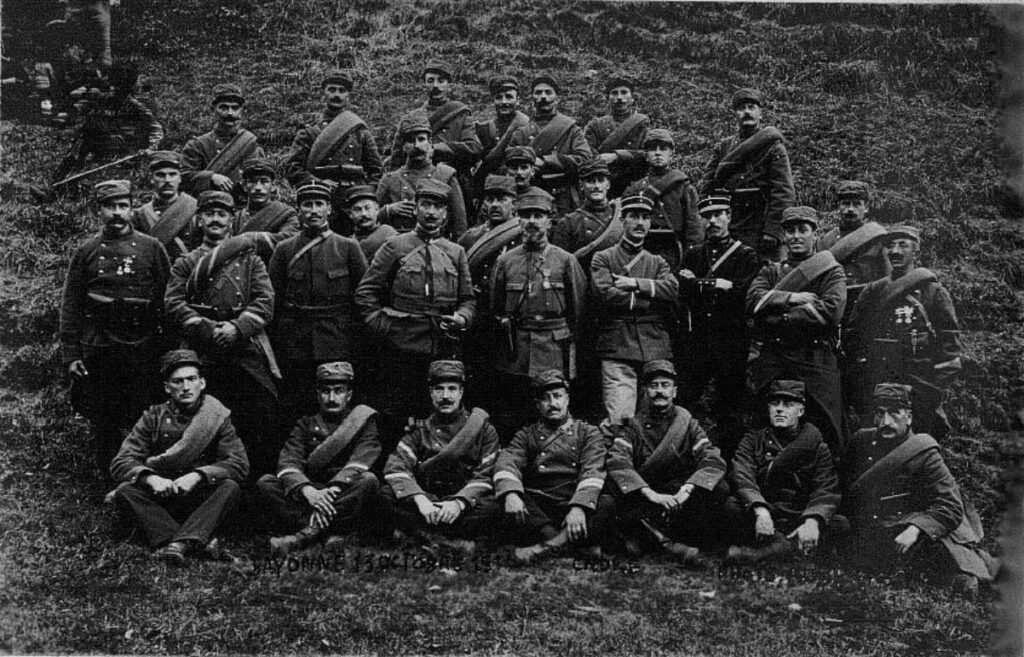
In fact, young American poet Alan Seeger died in the battle, his posthumously published poem “I Have a Rendezvous with Death” becoming a fundamental part of the French Foreign Legion’s esprit de corps.
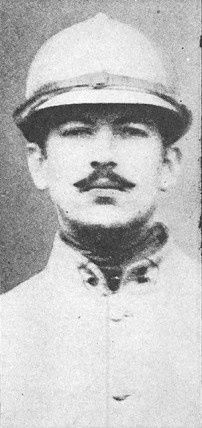
Enlistment, Selection, and Training
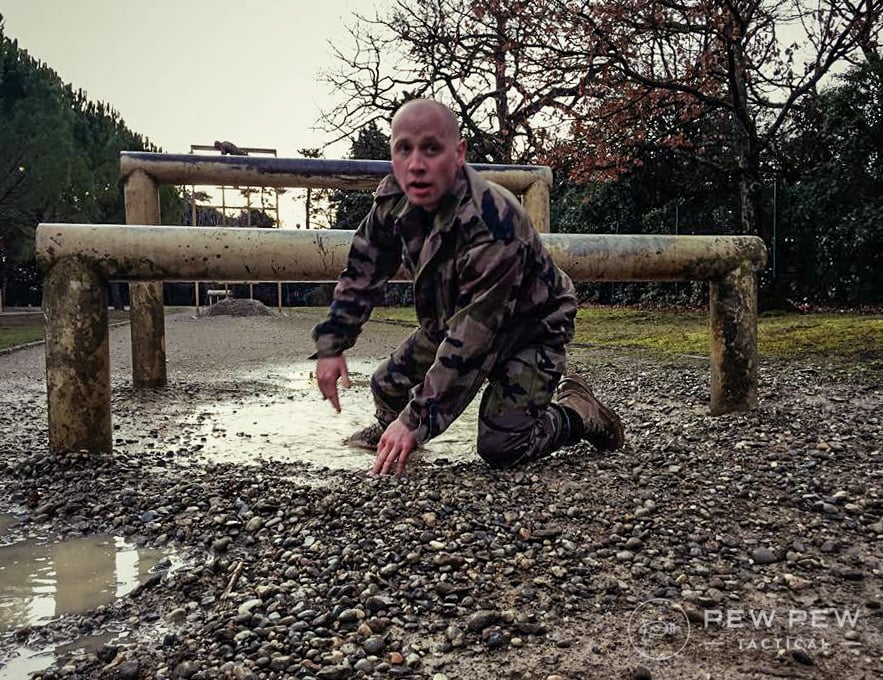
The first thing my friend Alex did before heading to the enlistment office was to stop at a laundromat. After all, he didn’t know how long it would be before he’d get new clothes or be able to wash his old ones. As the clothes tumbled in the machine, he eyed the electronics in his backpack. A Kindle, an iPhone.
The FFL cadre were notorious for picking people out and looking for reasons to kick you out. He didn’t want to give them one. He wiped the Kindle and left it on the laundromat counter. He reset the phone and destroyed the SIM card.
From the laundromat, he found his way to the gates of the Premier Régiment Éntranger and watched the other legionnaires and considered what his future would hold. Inside, he approached the security desk. He’d prepared for this part. “Bonjour, je veux m’engager dans la légion étrangère.”
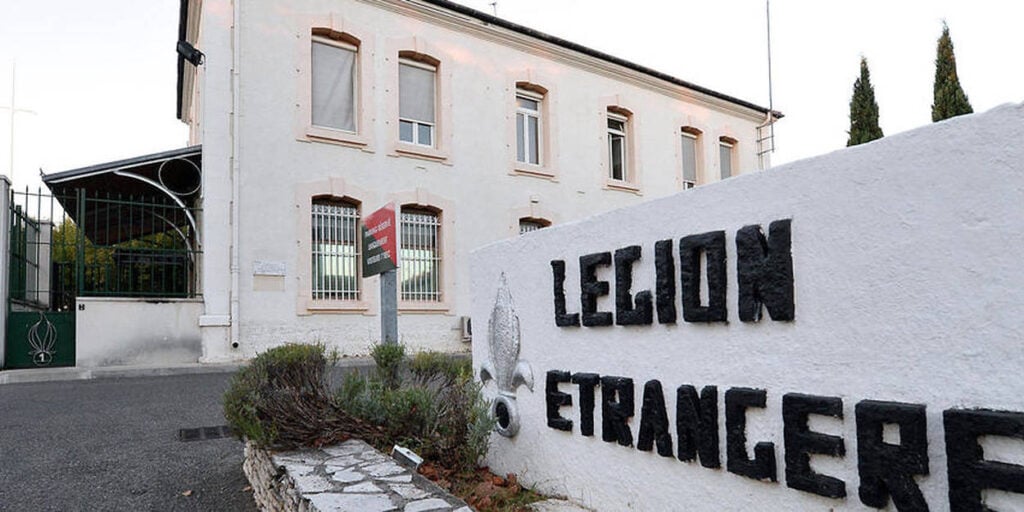
Unfortunately, all his Duolingo practice wasn’t enough to understand what the guard said next, but he made out the word for passport. He handed it over.

“American boy, eh?” the guard said, listening to the radio. “You know this song?” He didn’t. The guard thrust a finger toward benches where several other nervous candidates sat waiting, so he went to join them. There he waited all day while new recruits came in, several trying to talk to him in Russian or Ukrainian.
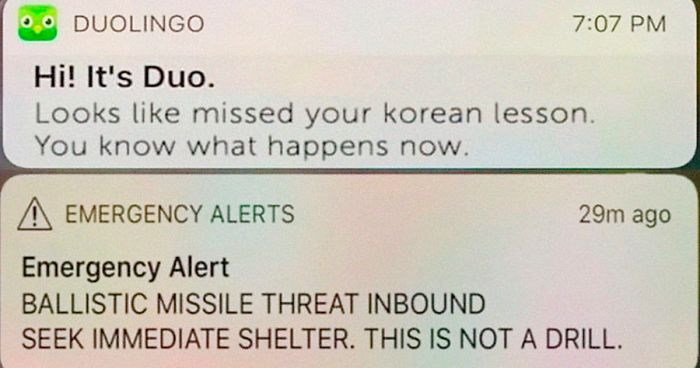
Eventually, a soldier came to take them to another part of the base where they were given new identities.
After that began selection, a four-week ordeal of medical and psychological evaluations including the Legion “Gestapo” looking for any reason to kick out recruits. Of course, more than anything it was just a lot of waiting and chores.
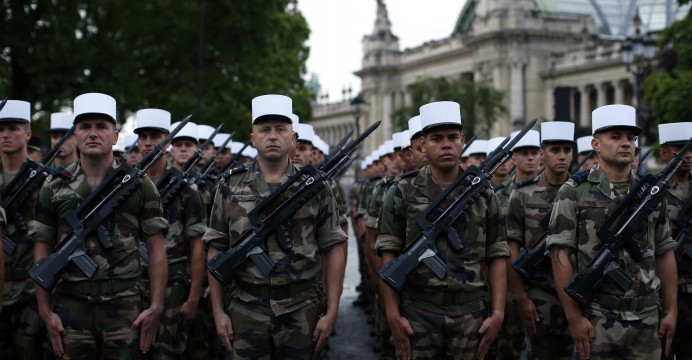
Once Alex passed selection, he got his gear and went to basic. That included all the marching, running, shooting, o-courses and the collective punishment typical of any basic training but with a lot of French classes added on.
In particular, the French Foreign Legion is fond of mind games, important for their frequent deployments with local populations and assignments the regular French army doesn’t want to get their hands dirty with.
Which brings us to…
Engagements
He’s out now, but Alex went all over the world with the Legion. However, even though the French military works closely with the US, he never worked side by side with American troops. That’s because while the FFL had considerable presence in Afghanistan, most recently, they’ve been used for African operations and internal French security.
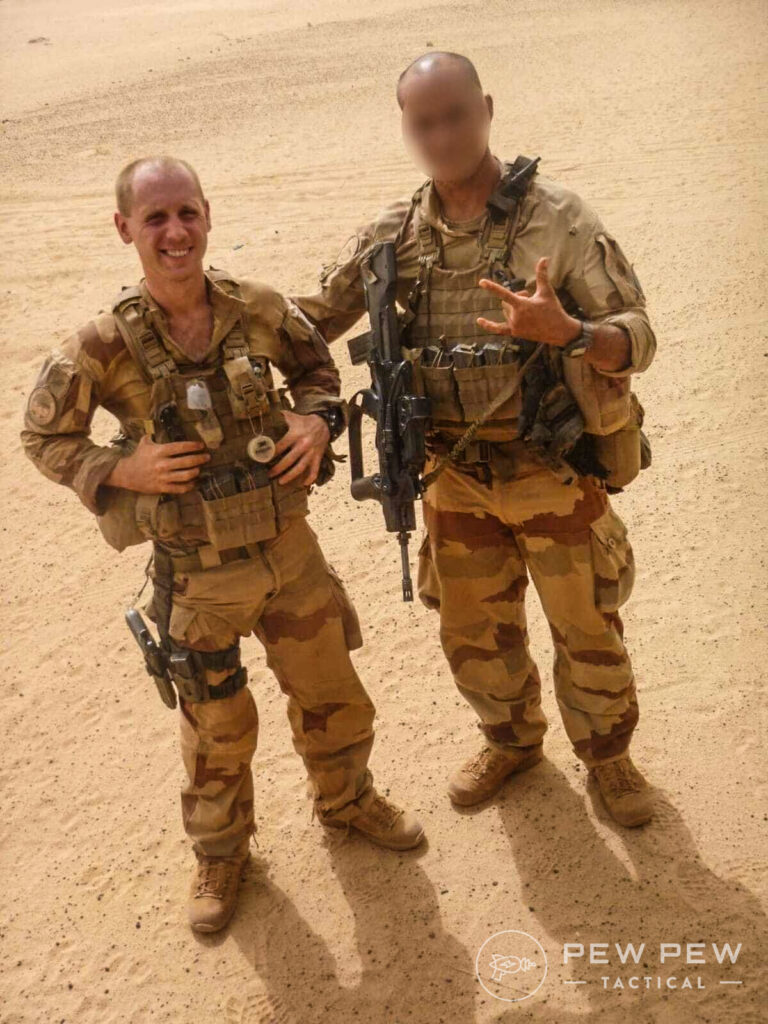
Alex’s main deployment was to Mali. You might remember when a Jihadist terrorist group affiliated with ISIS known as Boko Haram kidnapped some 200 schoolgirls in Nigeria after murdering the schoolboys. These Islamist militants also reach into northern Mali, where the Legion attempts to fend them off and stabilize the region. Specifically, Alex’s regiment provided security for a large swath of territory patrolled by French Special Forces.
You may also be familiar with the rise of domestic Islamic terrorism in France. The French Foreign Legion spends a significant amount of its time deployed in something called vigipirate in major urban areas like Paris. They’re the first responders in events like the Charlie Hedbo shooting.
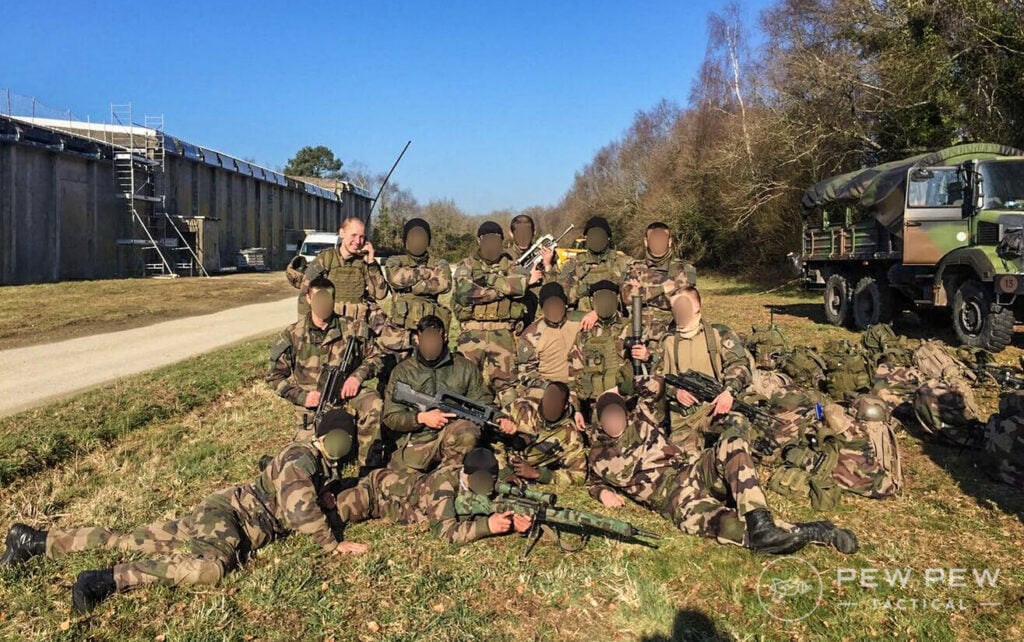
The Legendary Arms
Now for what probably brought you here, all the cool guns these guys use. Alex gave me a full rundown.
Fusil d’Assaut de la Manufacture d’Armes de Saint-Étienne (FAMAS)
This 5.56 x 45 mm NATO rifle, which the French military refers to as Le Clairon or “the bugle” because of its distinctive shape, is the primary weapon FFL infantry train on, though it’s being phased out for the HK416F. Alex said it’s a great gun but hard to clean for all its nooks and crannies, which actually makes it ideal for recruits.

If the cadre like you, they ignore the pointless spots. If they don’t like you, they make sure to check.
Alex’s biggest complaint was the additional FELIN electronics and communication system attached to the top of “the bugle.” Apparently the guard rail for the slide is on the outside. “I’m supposed to go into the desert with this thing?” Alex said, “Needless to say it was a big problem.”
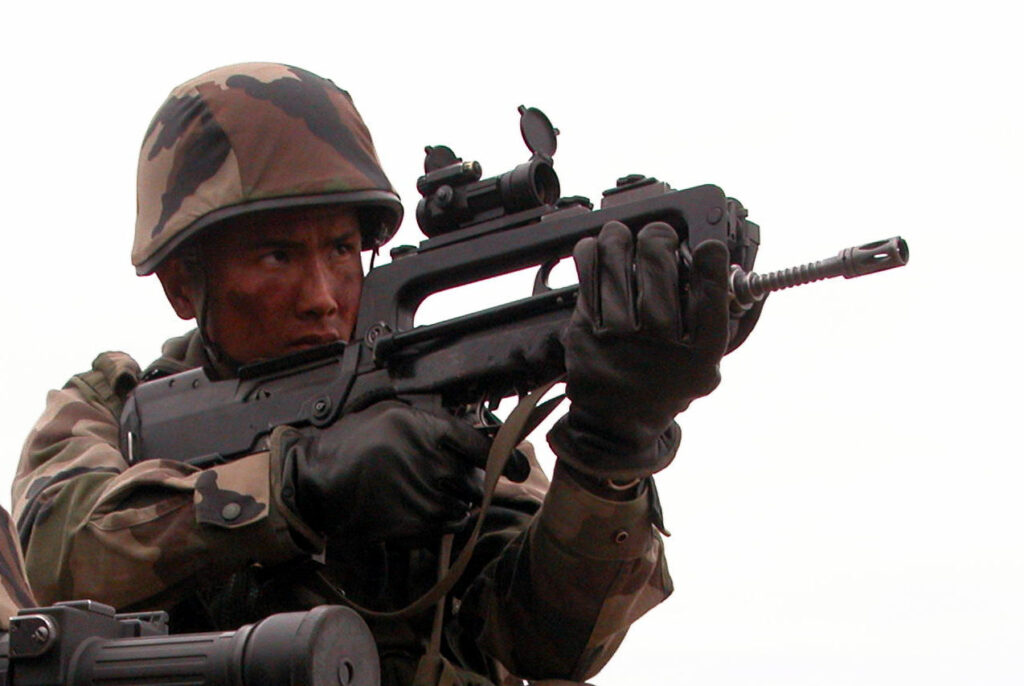
PAMAS
This is the Legion’s go-to sidearm. It’s actually a Beretta 92F 9x19mm pistol, similar to the one used by the US military as the M9. Alex said he didn’t see anything special about the gun, but it was nice to have one.

That’s because you always had to be armed, so someone with a pistol could get away without having to carry a rifle everywhere. As a result, the PAMAS was also a sign of prestige.
Prices accurate at time of writing
Prices accurate at time of writing
-
25% off all OAKLEY products - OAKLEY25
Copied! Visit Merchant
Arme Automatique Transformable Modèle 1952 (AA-52/AN-F1)
This is a 7.62 x 51 mm NATO machine gun manufactured by France and based partially off the old German MG 42. Like many French firearms but few others, it uses a lever-blowback system where the gun actually harnesses the energy of the cartridge casing being pushed backwards to reload.
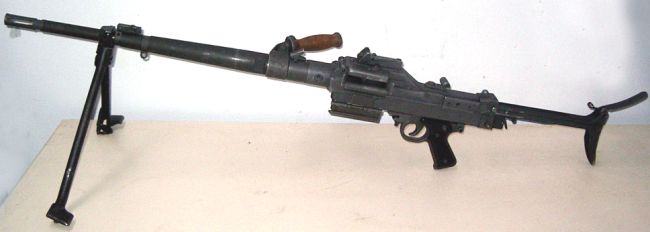
Alex had few good things to say. It can be used as a light machine gun on a bipod, but apparently it’s only ever vehicle-mounted these days. It’s hard to clean and maintain, and it’s almost a punishment to get assigned to it.
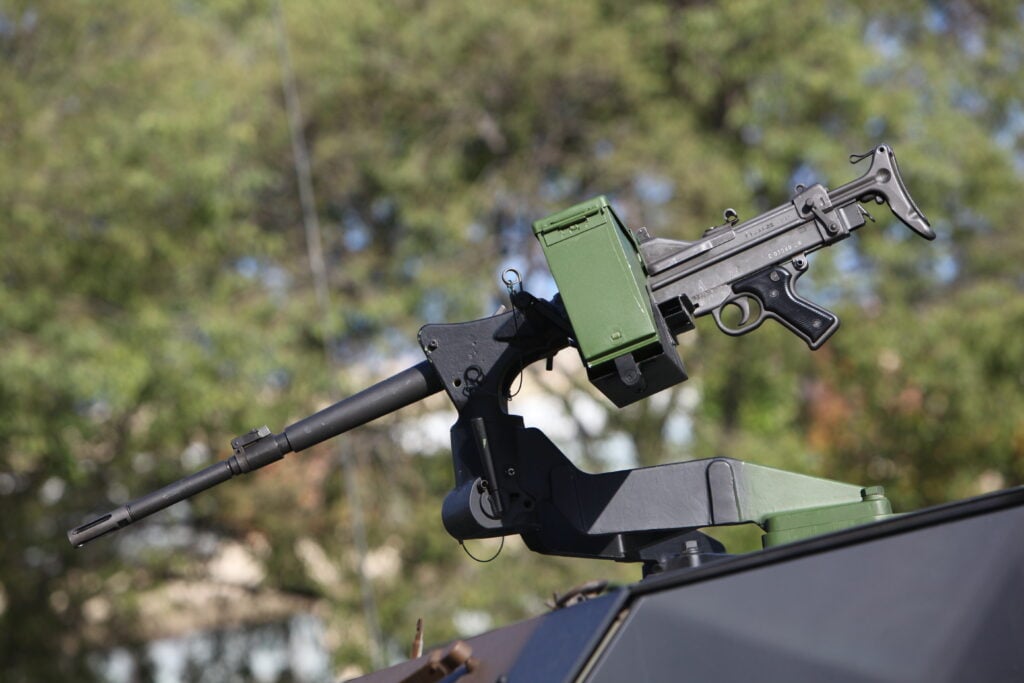
FN Minimi
The name is short for Fabrique Nationale, a major Belgian firearms manufacturer, Mini Mitrailleuse, or mini machine gun.

It fires 5.56 x 45 mm NATO cartridges, which means that along with being belt-fed it can also be fed with the standard NATO magazines used for other guns of that caliber like the M16.
The US military also uses it as the M249. It’s fully automatic and used for squad or platoon support. Alex loved it and said it was a ton of fun to shoot.
M2 Browning
Many know this heavy machine gun as the famous .50 caliber invented by John Browning during World War I.
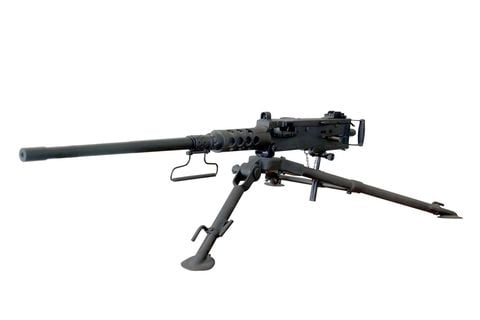
In France, of course, they know it by its NATO caliber 12.7x99mm and therefore call it “douze-sept.” The M2 Browning is beloved by gun enthusiasts the world over and manufactured by a number of companies including Fabrique Nationale.
Despite this, Alex said he found it hard to aim and didn’t like being in the turret with it.
FN MAG
This is a 7.62 x 51 mm NATO machine gun also manufactured by Fabrique Nationale. Alex said it was vastly preferable to the AN-F1 but required a bit more maintenance.
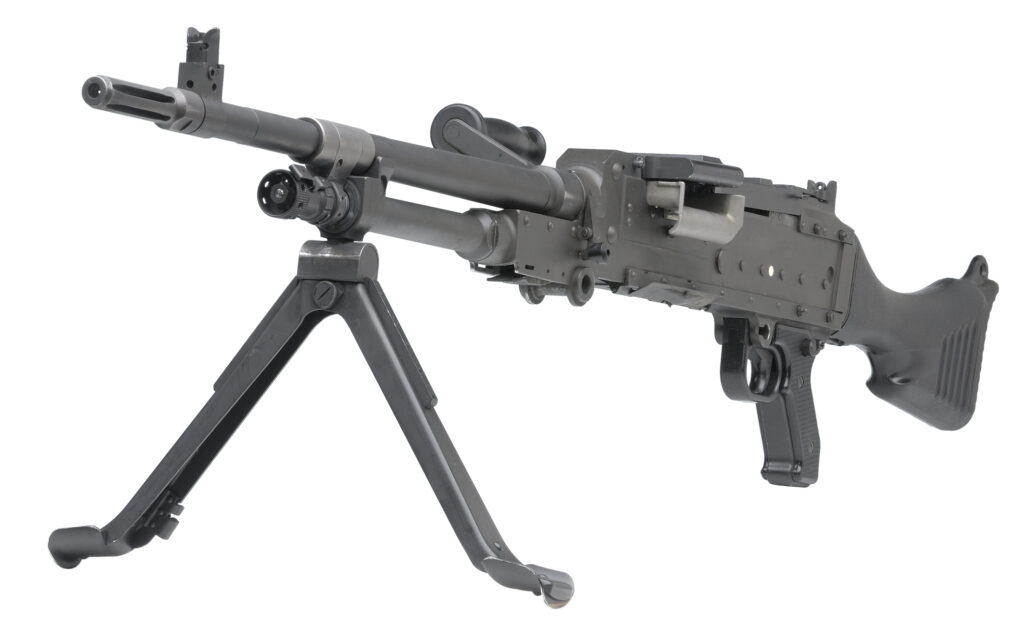
While he was deployed in Mali, this was the gun on his vehicle. It was attached to an electric turret with a thermal cam that he could control from the comfort of his seat. At least, until the air conditioning broke.
Do You Dream of Adventure?
For those without prior military experience, the French Foreign Legion represents one of the few remaining ways to be an adventurer like the mercenaries of the old days. If you don’t want to join the French military or learn French, there are a few other options—if you meet the requirements:
- The Belgian, Danish, Irish, and Luxembourgish armed forces accept anyone who is a citizen of an EU member state.
- The Greek military accepts enlistees who can prove they’re ethnically Greek. A fluent level of Greek is required.
- The Israel Defense Forces recruit anyone who is Jewish or has at least one Jewish grandparent. They’ll even recruit converts to Judaism.
- The Russian military will accept any foreigner under age 30 who is proficient in the Russian language.
- Spain also has a “foreign legion.” However, enlistment is limited to foreigners from a specific list of countries that were former Spanish colonies, all in Latin America.
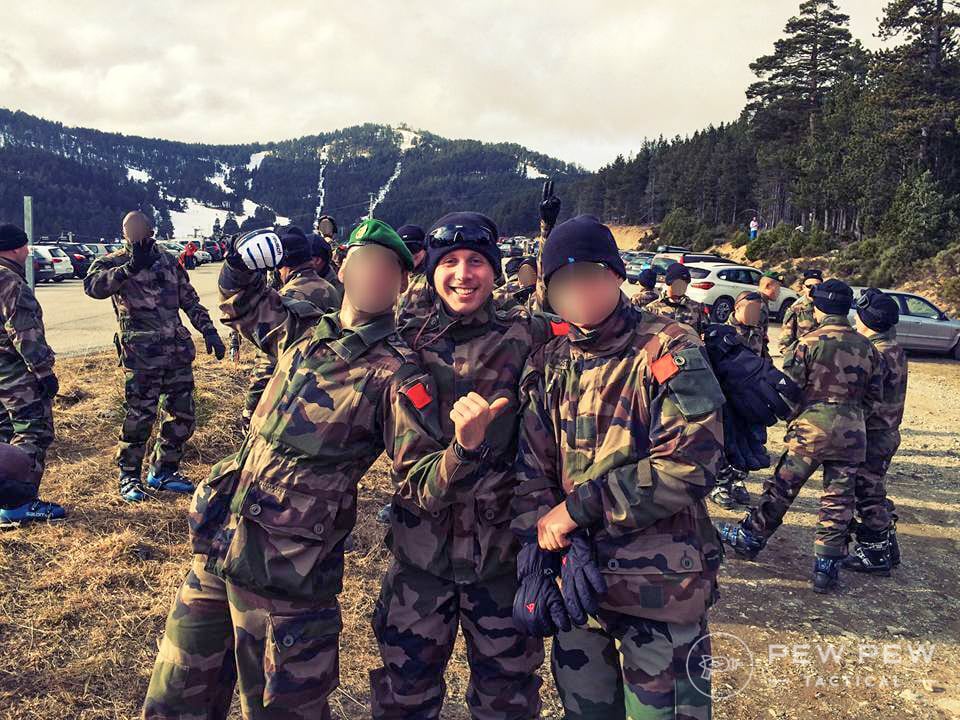
You can also volunteer in current conflicts. Most notably, people from all over the world have volunteered to fight in the Syrian Civil War. The Kurdish forces in northern Syria have several international brigades like the YPG and YBS that accept foreigners, but you generally have to adhere to their socialist philosophies.

As for Alex, he enjoyed his time as a French Foreign Legionnaire. Still, he had some words of wisdom. Specifically, if you do join the Legion—or any military force for that matter—and you’re looking for adventure and thrills, don’t be too good at your job. That’s how he got assigned to the radio instead of the cool guns.
Plus, he said, sometimes the individual gets lost in the institution. Military service isn’t the only way to lead an adventurous life. In fact, it can sometimes even be a hindrance.
He finished his contract this year and didn’t renew. Although he’s proud of his service, he has new adventures on his horizons.
In just a couple of months, he’s expecting his first child with his French girlfriend. His service granted him residency and a pathway to citizenship as well as the opportunity to go back to school. As often happens, one adventure has opened the doors to many others, and he’s excited to lead a new life in France.
Have you ever considered joining a foreign military? Or are you just here to peep what guns they use? Tell us in the comments below! And while you’re here, learn more about European gun culture, too!

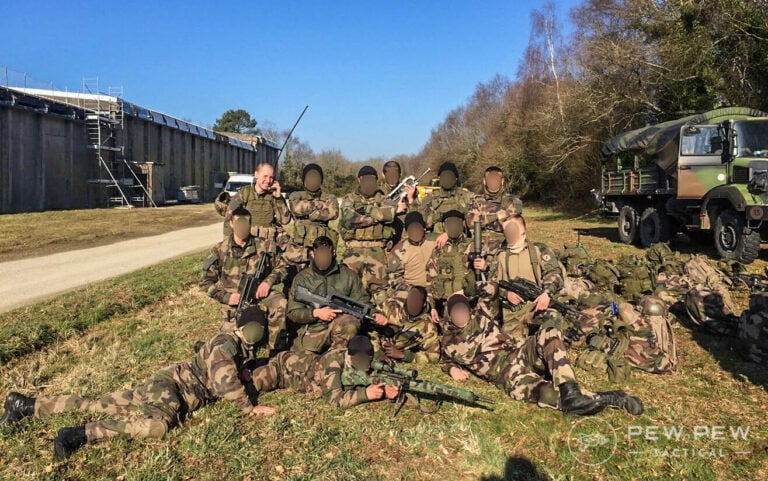





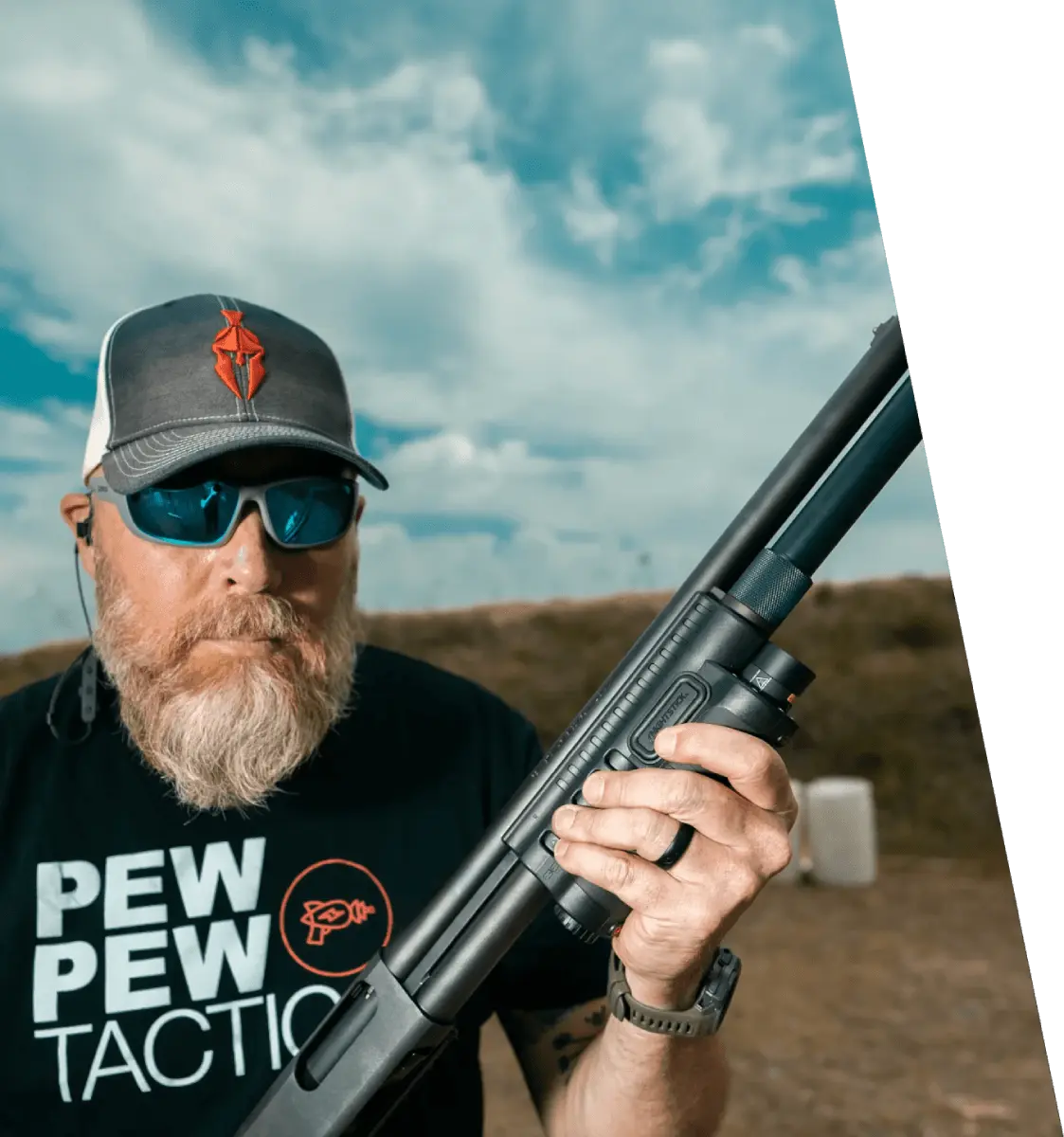

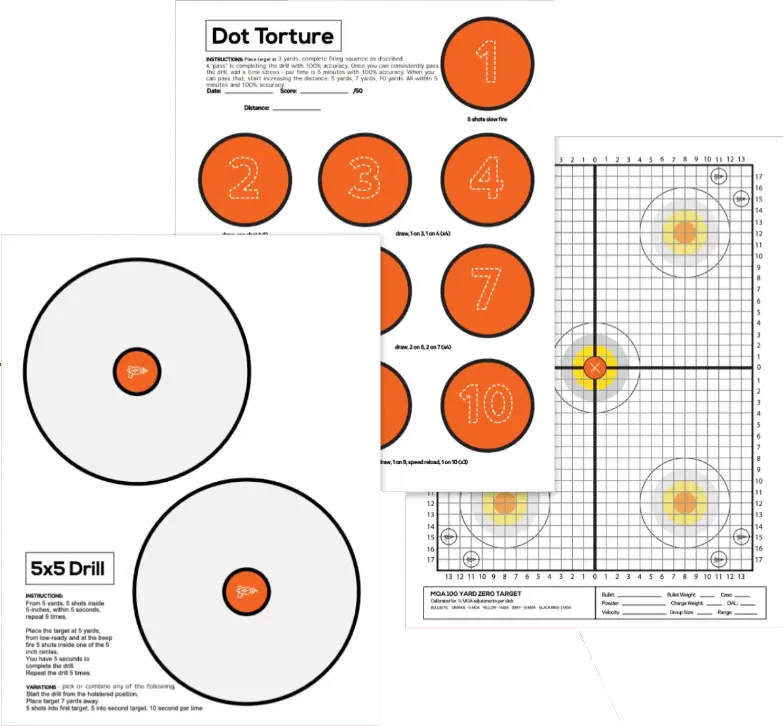
15 Leave a Reply
There is not a "Spanish foreign legion". You can enlist as a foreigner if you are from latin america in any branch of the military.
There is a Legion in the spanish land army, the tackiest most fascist part (do you imagine a regiment of the bundeswehr called "Hitler", well, there is a "bandera" called "General Franco")
"He finished his contract this year and DIDN'T RENEW" oh really...?
Yes, but that story is in a different article by another journalist and publisher.
Very interesting. I would love to see a follow-up about the training he had to go through and what his experience was like.
22 years FFL. May 1974 entry. To this day the toughest and most rewarding thing I've ever done and the thing I'm the most proud of. (Dont tell my kids...). 2ReP 5e CIE, GCP, STE.
The FFL is one of the most unique and capable fighting forces on the planet. Their involvement in recent conflicts against enemies of the free world have cemented their position as a formidable foe to those who would threaten and attack us. There are entire villages in Africa and the Middle East that would no longer be there if it were not for the bravery and courage of the FFL. Glad to see they are upgrading their tools, long overdue IMHO. And tell your buddy 'Thank You!' for his service.
Your story doesn't add up pal. I think your friend is a fictional character, but your legion facts, romanticism in tow, is common information.
Good try for your ego.
Aubagne, December entry, 1999.
Agreed, this seems more likely than an American betraying their country.
Author here. Alex was in ROTC before being disqualified for a condition that ultimately proved to be misdiagnosed. That's why he ultimately went to France, one of America's closest allies.
Christian, thank you for this article, great info on my favorite subject: guns. But technical info aside, I would stay away from any political glorification of French army, especially FFL.
French lost all wars since WWI. Apparently we don't agree that they are some of our closest allies. They are also not to be trusted. Hint: remember Vichy.
For a fact I know that African people don't want their help. Probably you know that North African people kicked them out of North Africa? I can go on and on on this subject, but again, it will not change anything in our perception on that matter. Any discussion about politics is futile.
Again, I really appreciate your effort on the technical info.
Author here. Weird take. This article is full of photos, so he's definitely not a "fictional character." If you mean that you don't believe I actually know him, here are a number of photos of us together, spanning over a decade and two continents:
https://imgur.com/a/R3C1jxv
Maybe I should have included some photos of us together to provide authenticity. Thanks for the notes.
What do you mean about don't be too good at your job?
My suspicion is he was too good at speaking French, too good at speaking English (NATO radio language) and too good at working with technical equipment. If all you're good at is shooting a gun, you get to use the nice guns. If you also know a few other skills, you will have to employ those. Which usually translates to less trigger time.
Can I join? I’m 68
I'll go with you, I'm only 72.